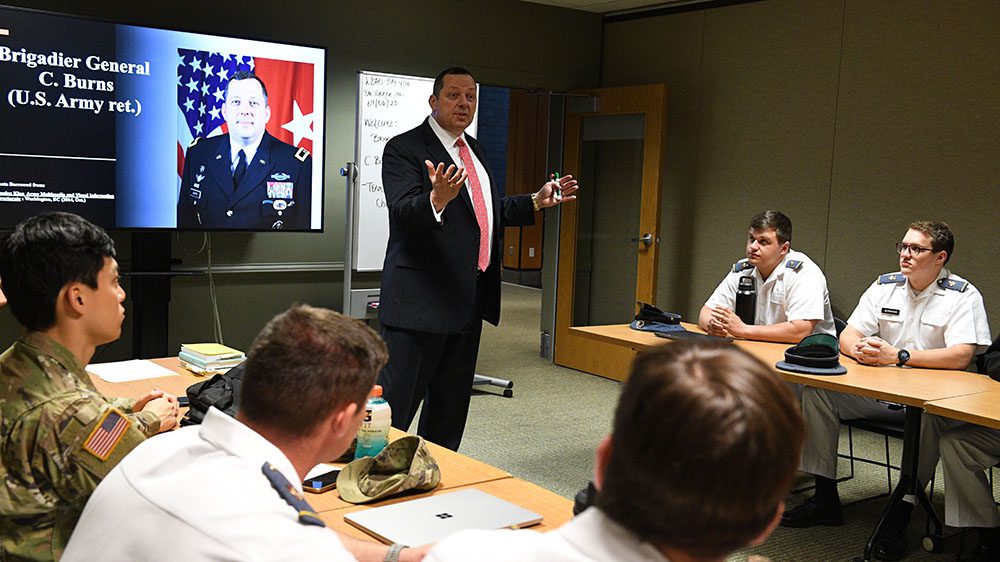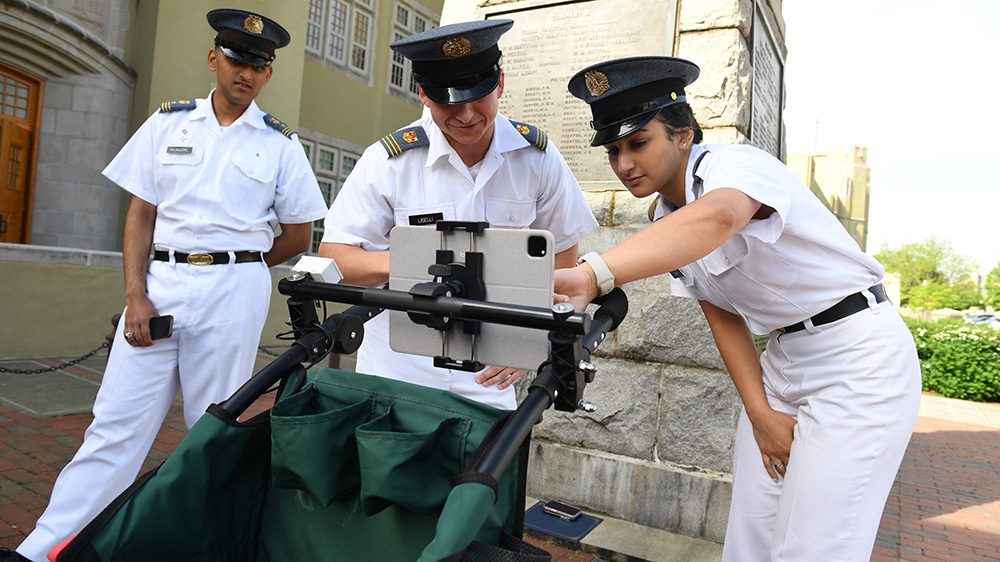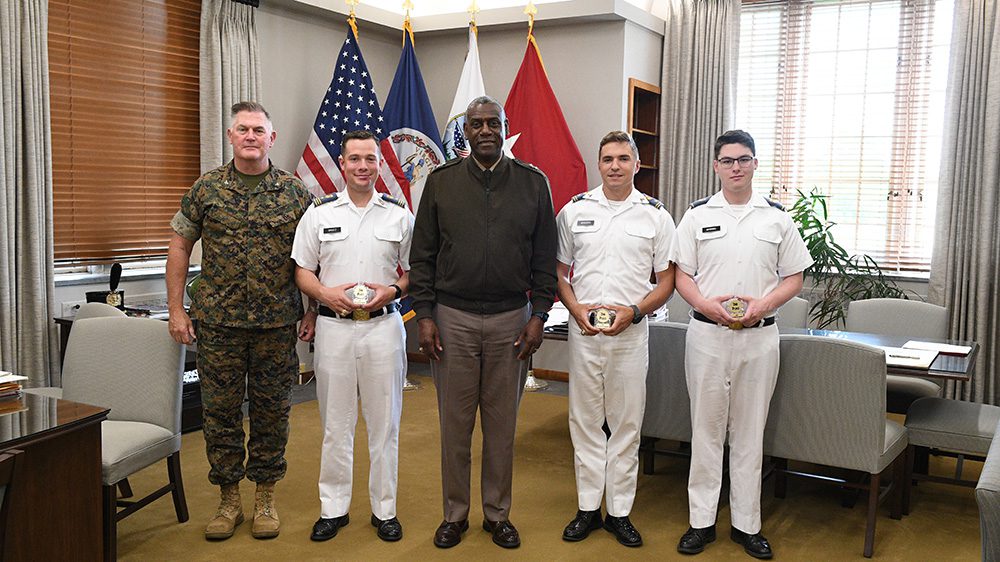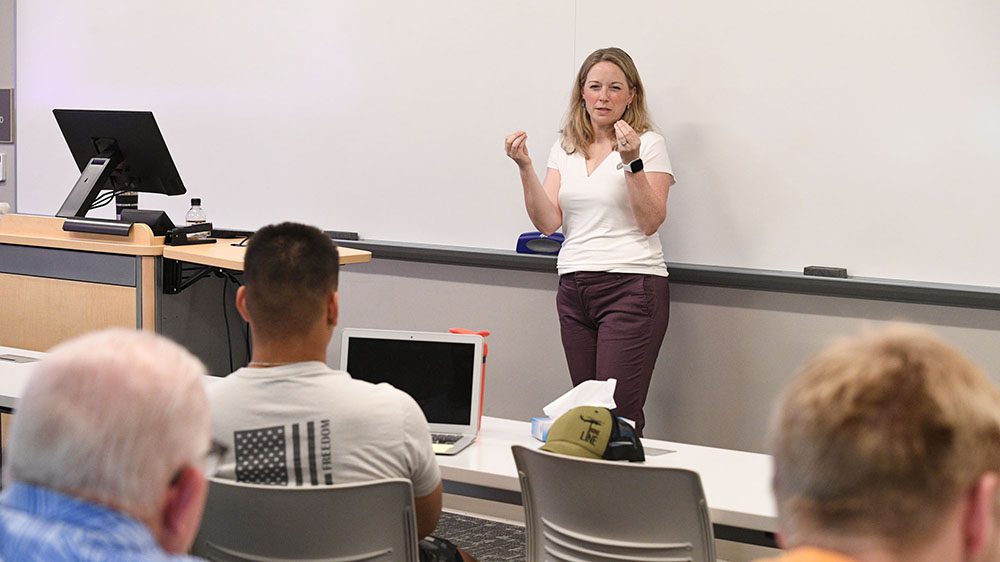Retired U.S. Army Brig. Gen. Chris Burns is the Gen. J.H. Binford Peay III ’62 Leader-in-Residence for the 2023–24 academic year. Named in honor of VMI’s 14th superintendent, the LIR program is an important part of the Center for Leadership and Ethics’ efforts to educate, engage, and inspire cadets, faculty, and staff to develop as leaders and brings to post people of stature within their fields whose distinguished careers exemplify the citizen-soldier model. Burns’ residency amounts to a two-week visit over the course of the academic year, in which he interacts primarily with cadets in various formal and informal settings, including the classroom, barracks, and extracurricular activities.
Burns commissioned in 1987 as a distinguished graduate of the ROTC program at the University of Connecticut. Upon graduation, he transferred to the Rhode Island Army National Guard and began training to become a Green Beret. He served in numerous assignments within special operations throughout his career, including command positions supporting Operation Enduring Freedom. Burns completed 37 years of service, culminating as Special Operations Command North commander at Peterson Air Force Base in Colorado.
Sitting in on a few classes recently, Burns led cadets in discussions on effective leadership in both the military and private sector. He began by asking the cadets why they chose to come to VMI. After various answers, he responded, “So your reason for being here, your ‘why’ as I like to call it, can be different from other cadets, but there’s still an overarching appeal that brought you to VMI.”
Burns stated that while many colleges are struggling with enrollment numbers, the number of matriculants at VMI this year was up. He believes part of the reason is that young people are realizing that they need a leadership element to be successful. “VMI provides a leadership laboratory. You could go elsewhere and get a master’s degree in leadership, but you wouldn’t experience leadership. Cadets here are immersed in leadership all day, every day. You don’t get that if you go to university, even if you’re involved in ROTC there,” he said.
According to Burns, true leadership is defined when it’s raining, when it’s hard. “VMI gives you that space to learn. That’s why it’s called the Corps of Cadets—because you’re learning with each other, helping each other, and bonding. You’re also learning how to improve. You are placed in a stressful environment to see how you operate, so you understand when you are at your best, and when you start to fray and get tired, so you know to take a break. When you are in a leadership position either in the military or in civilian life, knowing your limits will serve you well,” he advised.




